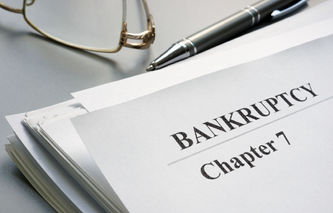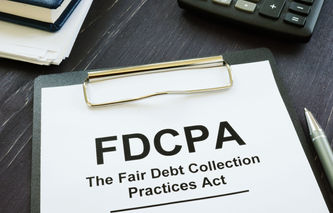Back in 2005, Congress passed into law some wide-reaching changes to the bankruptcy process. At the time, it seemed these laws were aimed at making it even more unpleasant for individuals to file for Chapter 7 protection. However, one of the unintended consequences of that legislation appears to be an increase in the cost of bankruptcy.
In this article, we're going to examine some of the data coming out of a federally-funded study conducted by the Government Accountability Office. That study revealed the cost to file for bankruptcy has been on the increase since 2005. As part of that discussion, we're also going to review data on the numbers of individuals that have filed for bankruptcy protection in the years following the 2005 reforms.
Bankruptcy Law Changes
Back in October of 2005, there were modifications to the then existing bankruptcy laws that affected both individuals as well as businesses. These adjustments were part of the Bankruptcy Reform Act, and six of the more significant changes included:
Eligibility: it became more difficult for individuals to file for Chapter 7 bankruptcy, which offers debtors the option of liquidating their assets to pay back lenders, and can result in significant debt forgiveness when assets are insufficient to satisfy the amount of money owed to all creditors.
Proof of Income: federal income tax returns would now be used as proof of income, and this information needs to be supplied by the IRS.
Chapter 13: as more individuals are excluded from Chapter 7, there will be a migration to Chapter 13 filings, which require debtors to establish repayment plans.
Counseling: attending credit counseling sessions would now be mandatory for individuals declaring bankruptcy.
Child Support and Alimony: money going towards the payment of child support and / or alimony is now given higher priority.
Automatic Stay Protections: declaring bankruptcy would no longer be a guarantee of protection against creditors.
The intention of these new laws was to make the decision to file under Chapter 7 protection more difficult. The desired outcome was to convince individuals that Chapter 13 was the better option. Chapter 13 involves the adjustment of debt, and is particularly well-suited to individuals that still have a steady source of income.
As mentioned earlier, one of the unintended consequences of this new law was an increase in the cost to file a case in court. The additional paperwork under the new system required more oversight by professionals as well as program administrators, and therefore higher fees were passed back to the individuals filing new cases.
Bankruptcy Costs
One of the side effects of the Bankruptcy Reform Act was an increase in the cost for individuals to file their cases in court, and what follows below is a breakdown of those expenses. The overall increase can be divided into two sections: filing a case in court (filing fees), and the hiring of an attorney.
As the complexity and volume of paperwork increased, filing fees were increased as part of the reforms of 2005. These same fees increased a second time as part of the Deficit Reduction Act of 2005.
Attorney fees started to rise due to the added complexity of the new reform rules, which required attorneys to spend more time reviewing and preparing each case.
Chapter 7 Attorney and Filing Fees
When individuals file under Chapter 7, they are seeking protection from creditors through the liquidation of their assets. The intent of the Bankruptcy Reform Act was to make filing Chapter 7 more difficult for individuals and families.
The attorney fees, as well as filing fees, have increased significantly over the past several years, and are a direct result of the increased level of case complexity:
Prior to the passing of the two acts mentioned earlier, an individual could expect to pay $209 in fees. This included a $155 statutory fee, administrative fees of $39, and a $15 trustee fee.
Starting in 2008, individuals filing for Chapter 7 can expect to pay $299 in fees. This includes a $245 statutory fee, administrative fees of $39, and a $15 trustee fee.
From 2005 to 2007, the average attorney fee to handle this type of bankruptcy case increased by $366 to $1,078 according to research conducted by the United States Government Accountability Office.
Based on this research, it's possible to conclude the total cost to file for Chapter 7 increased from an average of $921 in 2005 to $1,377 in 2007. That's a 49.5% increase in fees.
Chapter 13 Attorney and Filing Fees
When individuals file under Chapter 13 law, they are seeking protection from creditors through the creation of a debt adjustment plan. This is sometimes referred to as a wage earner's plan. The intent of the Bankruptcy Reform Act was to convert some of the potential Chapter 7 filings into Chapter 13 cases.
Filers under Chapter 13 also experienced an increase in attorney fees, as well as filing fees over the past several years:
Prior to the passing of the two acts mentioned earlier, an individual could expect to pay $194 in fees. This included a $155 statutory fee, and an administrative fee of $39.
Starting in 2008, individuals filing for Chapter 13 can expect to pay $274 in fees. This includes a $235 statutory fee, and an administrative fee of $39.
From 2005 to 2007, the median attorney fee to handle this type of case increased by $1,000 to $3,000 according to research conducted by the United States Government Accountability Office.
Based on this research, it's possible to conclude the total cost to file for Chapter 13 protection increased from an average of around $2,194 in 2005 to $3,274 in 2007. (Unfortunately, the research only provides a median value for attorney fees, not a mean value.)
The burden of higher fees is even more problematic when difficult economic times contribute to a family's financial hardship. Bankruptcy filings are on the rise, nearly doubling just two years after the reforms were passed.
Case Filings
Regrettably, the Bankruptcy Reform Act slowed down the rate of new case filings for what appears to be only a short time period. This fact serves to amplify the recent rise in the cost to file. Not only is it more expensive to file, but more Americans are willing to make this difficult choice.
In 2004, around 1.6 million individuals filed for bankruptcy, while in 2005 over 2.0 million individuals hurried to file before the reforms were put into place. In 2006, there were only 0.8 million filers, while from 2008 through 2019 the average increased to 0.9 million cases.







.jpg)
.jpg)